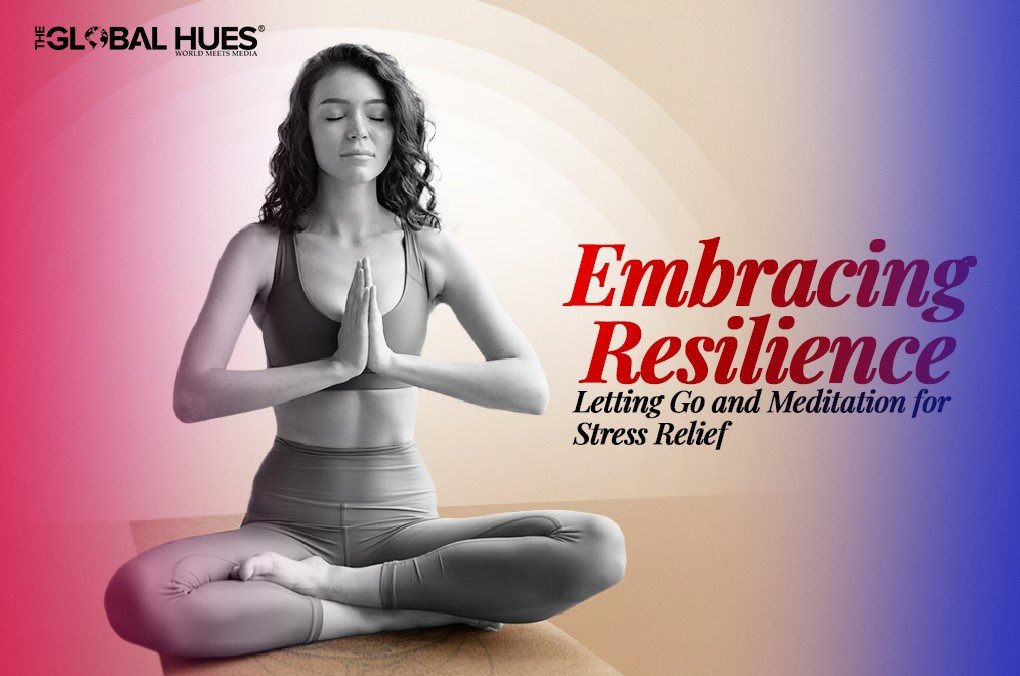(The article is developed in partnership with BetterHelp)
Resilience is a beacon of strength for many. It helps people navigate life’s challenges with grace. It may help some people stay positive and keep moving forward. It can be particularly helpful when things don’t go as we expect. The transformative power of resilience can include the liberating act of letting go. The calming practice of meditation can bolster strategies to increase resilience. But, there’s more than one way to increase your ability to be resilient.
Learn about the scientific research and practical wisdom behind the power and practice of resilience.
The Power of Resilience
Resilience is the capacity to bounce back from adversity. It is a dynamic quality that helps people adapt and thrive when life becomes uncertain. People can also display resilience after trauma or hardships.
It’s important to understand that resiliency is a complex concept. Just because one person’s trauma response and path to healing looks different than others doesn’t make one better or worse. That said, resilience appears to assist people in moving on from troubling circumstances. Therefore, cultivating it and learning about it may improve the quality of life for some.
Where Does Resilience Come From?
A prevailing opinion on resilience suggests it begins in childhood. In fact, much of the research on the topic studies children.
Stable homelives may play a role, but factors outside the home can also help. A strong sense of community and self-concept may help children develop resilience. Valuing and learning to identify emotions may also foster the ability.
Learning coping skills as children introduces the idea that self-soothing and strategy are ways to manage stress. Luckily, coping skills can also be developed as adults.
These are just a few ways people seem to build resilience. Being resilient may help individuals move on and let go when difficult things occur in their lives.
Letting Go: Embracing Change
One of the benefits of resilience is the ability to let go. Releasing attachment to outcomes and embracing the flow of change can foster a sense of liberation and inner peace.
Letting go and moving on can sound like nebulous concepts. But, there is power in releasing things we cannot control. It isn’t always easy, especially when trauma is a factor. However, leaving the past behind and moving into a brighter future feels like freedom for many.
What are some practical strategies for cultivating a mindset of acceptance and flexibility? Discovering tactics that work for you may help you navigate life’s inevitable twists and turns.
If you find you still face challenges around letting go, professional therapy may be an option for you. There’s no reason to struggle alone. In fact, reaching out for help and making connections with others are ways to foster greater resilience.
In-person or online therapy with services like BetterHelp could offer the support you need.
Meditation: A Path to Inner Peace
Incorporating meditation into daily life can be a transformative tool for building resilience. Through this practice, individuals can cultivate a deep sense of presence and calm, reducing stress and enhancing emotional resilience.
It has been shown to increase happiness, improve sleep and focus, and more. There is also evidence that meditation is therapeutic for physical conditions.
Meditation may have a multifaceted effect on resilience. The calming practice of meditation can create peaceful moments of recharge when things are overwhelming. Taking a break can give time to process, reduce frustration, refresh the mind, and more.
There was a time when meditation was primarily a spiritual practice. It is now embraced in secular ways as a tool to increase wellness. You do not have to be spiritual or religious to meditate.
So what’s the best way to do it? There is no right or wrong way.
Some people like to sit or lay comfortably and simply focus on their breath for 15 minutes. Others like to clear their minds and gaze at a flickering flame. Some people find sound-based meditations, like guided or sound baths, to be helpful.
Guided meditations involve listening to a person or recording with a verbal guide. The guide or therapist leads the listener through a scene to visualize. People who struggle to meditate on their own often enjoy guided experiences.
Secular meditation’s goal is to allow the nervous system to calm and the thoughts to slow down. It’s purposeful relaxation.
It can also create more mindfulness in one’s life, helping to reduce reactivity, and depression and even increase pleasure and joy.
Integrating Resilience into Work and Life
Resilience isn’t just a personal trait; it’s a skill that can be developed and honed over time.
By adding resilience practices to work and life, individuals can better handle challenges. It’s about having a set of skills but also a familiarity and acceptance of the transient nature of life.
Ways to foster resilience include:
Practice empathy and connecting with others. Knowing you are not alone can create a sense of home. It is reassuring to know help is there and people care.
Help others to balance feelings of helplessness and to further foster strong connections.
Embrace structure during uncertain times as a way to soothe yourself and feel more in control.
Take breaks! Give yourself time to recharge at points during the day.
Set goals and work toward achieving them. This can provide a sense of forward motion, hope for the future, and purpose. Setting goals can improve self-esteem and help some people have something to look forward to.
Practice self-care and good mental and physical hygiene. This supports your overall wellness. Feeling good can have a cumulative effect.
Letting Go And Moving Forward
Resilience is a powerful tool and trait that can ease transitions and stress. The ability to cope and bounce back can be transformative.
By embracing the power of letting go and harnessing the potential of meditation, people can cultivate resilience from within. A skilled therapist can guide you through the process if you find you are struggling.
With these and the other tools mentioned today, you can empower yourself. You can use them to thrive in the face of adversity.




